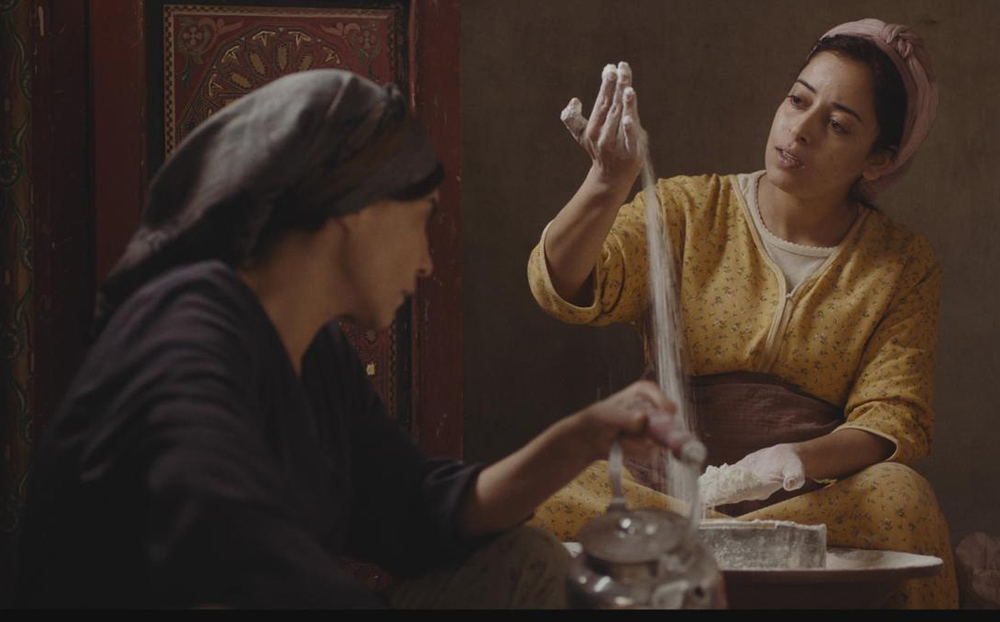You can’t be entirely sure that Abla (Lubna Azabal) is going to let Samia (Nisrin Erradi), a young woman she sees on the street into her home in “Adam.” One of the few women in the Moroccan town able to live on her own, along with her young daughter Warda after the passing of her husband, Abla has had to build up a resistance to anything that might upset the unremarkable yet comfortable life she’s found a way to sustain, opening up a window on the first floor of her house to sell mesmen and other baked goods. Samia’s initial knock on the door goes without a response from Abla when Warda answers, but when she realizes Samia is pregnant, she opens her door for what she intends to be two or three nights at first, but soon has implications for both women well into the future.
In Maryam Touzani’s deeply moving drama, Abla may begin telling people that ask in the nosy neighborhood that Samia is her “cousin from Moknes,” but it becomes evident that Abla’s the one who’s gone into hiding, lamenting the loss of her late husband Zhor to some extent, but also the security that having a male around can provide in a patriarchy. She immediately sees in Samia someone who’s never had that and needs her help, but also perhaps a little bit of herself before she put her walls up so high, unable to let herself flirt with a kindly neighbor who shows obvious interest or forge a stronger connection with Warda, forbidding music to be played in the house that reminds her of her old life and working long hours to keep a roof over their head. Samia finds a way to immediately help on the latter front, able to amuse Warda with her growing belly and having plenty of time to make rziza, the nest-like noodle pastries which can command more money at the storefront as a delicacy, but gradually through the two beautiful lead performances, you also see how she softens Abla, working on each other as carefully as they knead the dough.
This intricate touch extends to the hand of Touzani in what’s remarkably her directorial debut, though she last wrote and starred in her husband Nabil Ayouch’s “Razzia” (and the “Horses of God” director serves as a producer here). Besides eliciting the exquisitely realized turns from Erradi and Azabal, Touzani draws out the sounds on the streets of Morocco and stirs in other small, rich details of daily life to give a sense of the culture without leaving Abla’s house much since neither of the women can afford to be outside. Just as the filmmaker finds ways to tell the story that don’t bring attention to themselves, the story itself has a way of sneaking up on you when Samia’s pregnancy has some unexpected complications and “Adam” raises provocative questions that are worth chewing on even after they’re resolved for the characters. But what goes without question is Touzani’s ability to get the maximum impact from a slender narrative, opening a door for tremendous empathy from an audience by simply asking whether her characters will let each other in.
“Adam” will screen at the Chicago International Film Festival on October 19th at 7 pm at the AMC River East 21.




